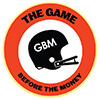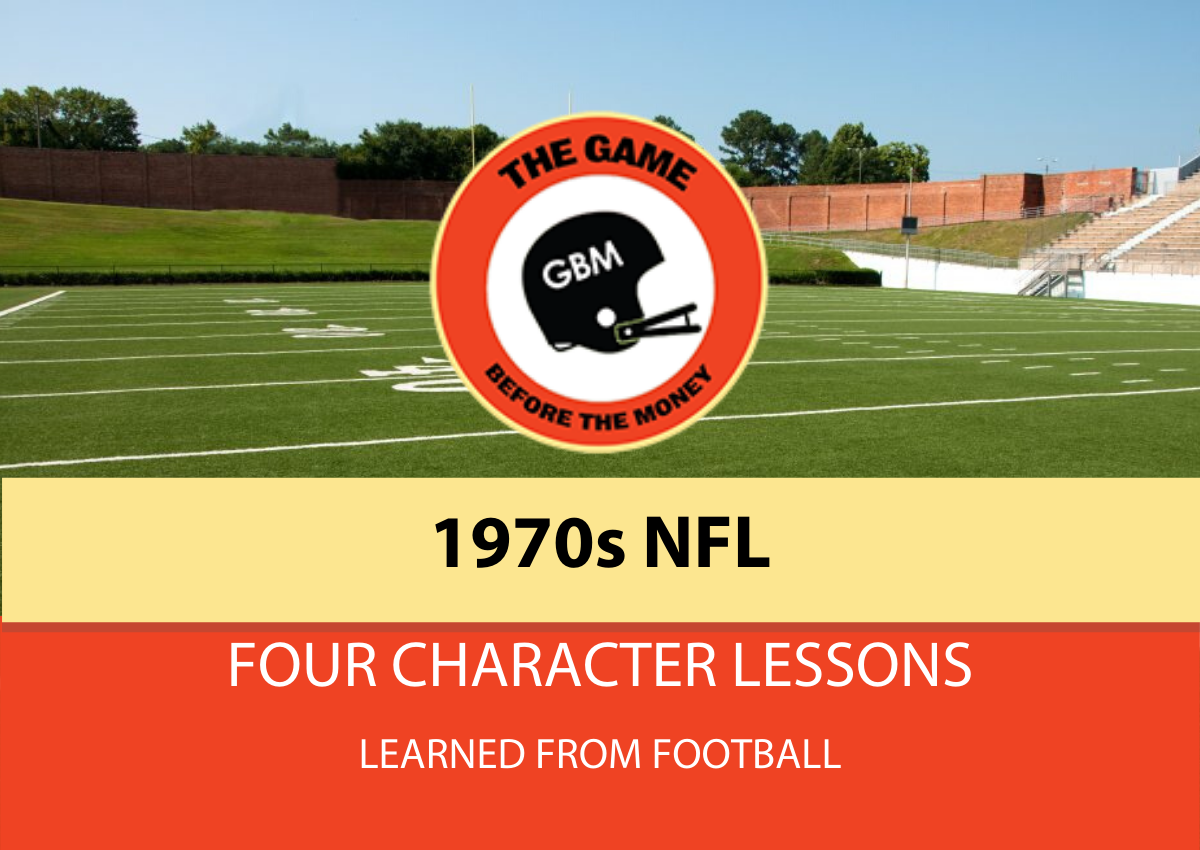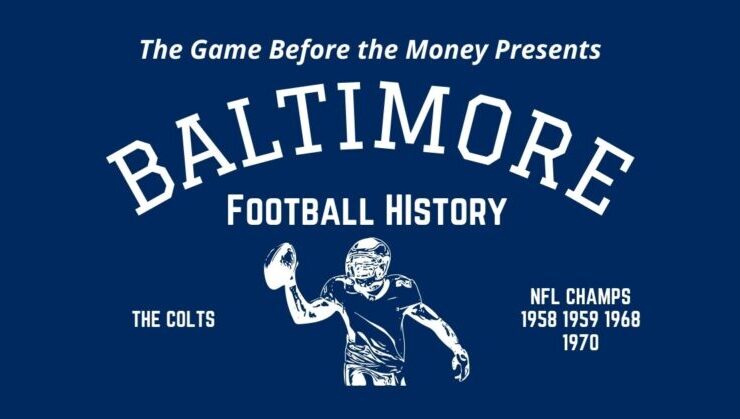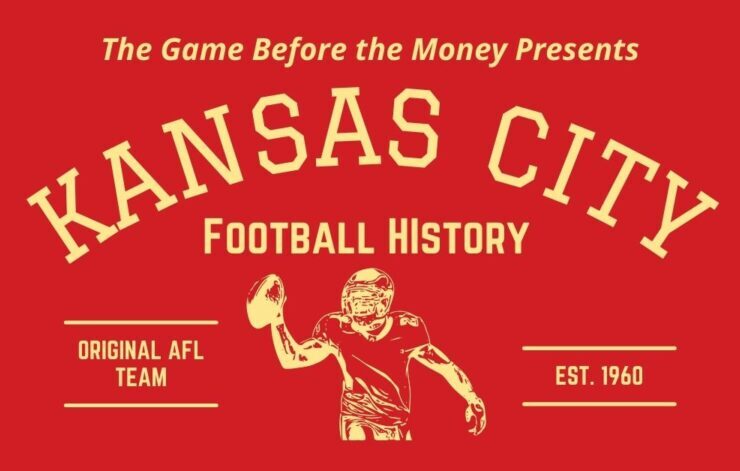Character-Lessons-From-Football was automatically transcribed by Sonix with the latest audio-to-text algorithms. This transcript may contain errors. Sonix is the best audio automated transcription service in 2020. Our automated transcription algorithms works with many of the popular audio file formats.
FOOTBALL HISTORY PODCAST:
Hi, everybody, welcome to "The Game before the Money Podcast".
Four leadership and character lessons from 1970s NFL football.
Hi, everybody, I'm Jackson Michael, author of The Game Before the Money. Voices of the Men Who Built the NFL that's available on Amazon.com.
You can also check out my Web site. The game before the Money.com. A little while back, I started coming out with five minutes of football history on every Tuesday on the game before the Money podcast. I'm modifying that a little bit from now on the game before the money podcast will appear every Tuesday. No matter what the topic, I'll still be posting feature podcasts with NFL Legends. Got one coming up with Karl Mecklenburg of the Denver Broncos, one with Roger Zatkoff from the 1957 NFL champion Detroit Lions. I also have a three part series coming up with Upton Bell, son of NFL Commissioner Bert Bell, and he'll share memories of three games that changed the NFL, the nineteen forty eight NFL championship game, the 1958 NFL championship game and Super Bowl three. All three of those games happened 10 years apart, and Upton was at all three. So a bit of a change for the game before the Money podcast.
But we're still going to put out great content. And of course, as always, we're going to focus on NFL legends. And we've got a lot of great podcasts coming up with former NFL players and coaches and former college greats as well.
Leadership and Character Lessons from Football
In this episode, we'll look for leadership and character lessons from 1970s NFL football. I thought this would be pretty fun. And in the preface to the book, The Game Before The Money, I mentioned that I learned a lot of life lessons from the legendary greats I interviewed. And so I thought I'd share a few of them with you here because life imitates football.
You get knocked down, you get back up, you struggle, but you overcome. Sometimes. Well, you just have to punt. The 1970s were a golden era for the NFL in the days before multi-million dollar contracts. I heard Terry Bradshaw just mentioned that his largest contract was for three hundred thousand dollars. The fields weren't meticulously groomed like they are today. Many turned into mud pits on rainy Sunday afternoons, and some locker rooms simply had a nail to hang your jersey by. A lot of times you hear about learning character through football. A lot of players harnessed the struggle you witnessed on the gridiron and they applied it to life. And the teachings ring as true today as they did through the fuzzy reception of 1970s televisions that we enjoyed watching the NFL on.
Sometimes You Have to Get Your Hands Dirty
The first life lesson from 1970s NFL football is sometimes you've got to get your hands dirty or sticky. We mentioned the Muddy Fields. 1970S football also included a gooey, sticky substance called stickum. Receivers like Fred Biletnikoff slathered stick them on. And it was so messy that Biletnikoff needed help tearing wrappers off the Juicy Fruit and Wrigley spearmint gum that he liked to chew during games. Biletnikoff's teammate Lester Hayes plastered himself in Stickum, smearing it on his hands, His jersey, his helmet, sometimes. Lester Hayes' over use of stickum partly led to the league banning the substance. However, the lesson that you need to do what you need to do to get the job done, that still sticks even to this day.
Toss it Up and See What Happens
A second life lesson you can take from 1970s football is sometimes you got to toss it up and see what happens. The Steelers trailed the Raiders seven to six in the 1972 AFC divisional playoff. Time allotted for one more play. And quarterback Terry Bradshaw rolled away from the pressure of three Raider linemen. And Bradshaw flung the ball up as Horace Jones crashed into him. And the ball took a famously controversial trajectory into the arms of Steeler Franco Harris. And the Steelers rookie raced over the goal line for the game winning score. Raiders quarterback Ken Stabler followed suit in the 1974 playoffs against the Miami Dolphins, and with thirty five seconds left, Dolphin lineman Vern Den Herder tripped Stabler. As Stabler fell forward, he flung the ball towards the end zone where teammate Clarence Davis stood amongst three defenders and somehow Davis came down with the ball to win the game. The Dallas Cowboys might have been watching that day because a couple of years later, in the nineteen seventy five divisional playoff at Minnesota. With less than 30 seconds left, quarterback Roger Staubach, launched a ball that sailed nearly 60 yards in the air and Drew Pearson caught the ball and waltzed into the end zone. And the Cowboys won 21 to 17. Now, these iconic plays known respectively as the Immaculate Reception, the Sea of Hands and the Hail Mary, let us know that sometimes our last desperate attempt can be our most successful.
So hang in there. And I know a couple of those endings are still controversial, but it still shows that you can be successful. Sometimes you get lucky.
You Can Make It If You Try
Which brings us to lesson number three. You can make it if you try. That's not just true in Sly and the Family Stone songs. A number of NFL stars from the 1970s came from small colleges. Terry Bradshaw hailed from Louisiana Tech. He wasn't the only one without a major program pedigree to make it to the Hall of Fame. Jack Lambert, Bradshaw's teammate, came from Kent State. Walter Payton and Robert Brazile laced up cleats at Jackson State, Brazile's Houston Oiler teammate Elvin Bethea scrapped his way to Canton from North Carolina A&T Other 1970s NFL stars from small schools include Cliff Harris, the Dallas Cowboys star who first played for the Ouachita Baptist Tigers. He'll be inducted into the Pro Football Hall of Fame with the 2020 class. And also Billy White Shoes, Johnson, a member of the NFL 100 all time team, made it all the way from Division three Widener. Just because you start small doesn't mean you'll end up there.
Bloom Where You’re Planted
And that kind of leads into lesson number four. Bloom where you're planted. Hall of Famer Joe DeLamielleure told me that his mother instilled this in him.
The NFL stars of the 1970s didn't enjoy free agency like today's stars. The team who drafted you out of college owned your rights. You couldn't negotiate a contract leveraging other offers from other teams even after your original contract expired. You could play out your option. That's another story for another day. So you might end up on a losing team and in Joe DeLamielleure's case, he played for the lowly Buffalo Bills at the unsung position of offensive guard. And still, he won the award for the NFL is best offensive lineman on a team that only won two games. So maybe you're not working at the Fortune 500 company of your dreams, but still blooming where you're planted will help you succeed. When you get there, DeLamielleure, of course, a Hall of Famer ended up playing with two NFL MVPs, one in Buffalo and one in Cleveland.
Four Leadership and Character Traits from Football
So remember these four leadership and character lessons from 1970s NFL football one. Sometimes you need to get your hands dirty, do the hard work, too. Sometimes you just have to toss it up and see what happens. Three, it doesn't matter if you start small, you can still make it. If you try and four bloom where you're planted, do great things where you are now and be ready to do great things where you end up.
Thanks for listening to this episode of the game before the Money podcast, check back again next.
You can find a transcription of this podcast on the game before the money, dot com.
The game before the Money podcast is powered by our transcription partner, Sonix. Visit Sonix.ai To learn more about their automated transcription services.
Sonix uses cutting-edge artificial intelligence to convert your mp3 files to text.
Rapid advancements in speech-to-text technology has made transcription a whole lot easier. Do you have a lot of background noise in your audio files? Here's how you can remove background audio noise for free. Automated transcription is getting more accurate with each passing day. Here are five reasons you should transcribe your podcast with Sonix. More computing power makes audio-to-text faster and more efficient. Are you a podcaster looking for automated transcription? Sonix can help you better transcribe your podcast episodes. Create and share better audio content with Sonix. Automated transcription is much more accurate if you upload high quality audio. Here's how to capture high quality audio.
Sonix is the best online audio transcription software in 2020—it’s fast, easy, and affordable.
If you are looking for a great way to convert your audio to text, try Sonix today.




